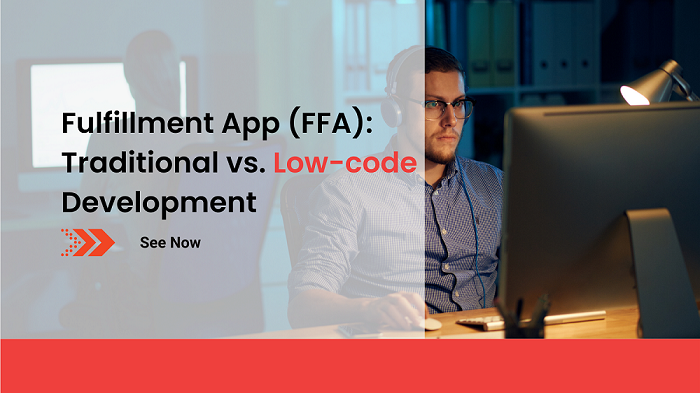A report from Gartner stated that, “By 2024, low-code application development will be responsible for more than 65% of application development activity.”
Many individuals are confused about the differences between traditional vs. low-code development.
What exactly is low-code? What distinguishes it from traditional development? These are questions that businesses are increasingly seeking answers to. Let’s explore a brief overview of these two methods of software development with their pros and cons according to TechTarget – an American company which offers data-driven marketing services to business-to-business technology vendors.
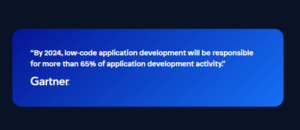
1. Traditional development
Traditional development (also called custom software development) is 100% coding, from start to finish. Building software this way requires an experienced programming team. You’ll obviously need to know at least one programming language, but most likely a few. Traditional development is also a team job, where several developers put your vision into many, many lines of code. In short, this is a “from scratch” process.
1.1. Traditional development brings several benefits
Control – Developers have the most influence over how their code is written and how their apps are organized.
Flexibility – Traditional development may be done with almost any programming language and development environment.
Deploy anywhere – Apps created in the traditional ways can be delivered to any location that developers wish to support.
1.2. Two major challenges of traditional development
Time – Manual programming takes longer than auto-generated code created by low-code technologies. Manually tweaking code to accommodate numerous platforms and building sockets and other interfaces between apps and services also takes time.
Skills – Traditional development may need more technical knowledge of a programming language or platform. Low-code development, on the other hand, necessitates specialized knowledge.

Traditional development
2. Low-code development
According to Mendix, a leading low-code development platform in the Gartner Low-code Magic Quadrant 2022 , “Low-code is a visual approach to software development that optimizes the entire development process to accelerate delivery. With low-code, you can abstract and automate every step of the application lifecycle to streamline the deployment of a variety of solutions. By breaking down traditional silos of business and IT (promoting continuous collaboration), your organization can develop solutions that meet the needs of your business.”
2.1. The chief advantages of low-code
Speed – Because a low-code approach avoids some manual programming effort, programmers can develop apps faster. According to Mendix, a low-code platform vendor, over three-quarters of developers who utilize low-code tools finish projects in under three months, whereas traditional methods might take twice as long or more.
Reuse – Although this may be limited to the same low-code platform, low-code modules are straightforward to reuse and exchange between apps.
Cost – Thanks to the speed of low-code development, it may help the company save money overall.
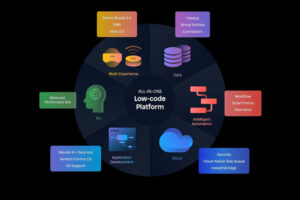
2.2. Low-code’s potential challenges
Quality – Low-code apps may not function as effectively or as consistently as well-designed apps developed in the traditional way. Rather than a team’s specialized deployment environment or application architecture, its auto-generated code is often built to serve a broad number of platforms and use cases.
Customization – Low-code platforms limit the ability to tailor an application’s general functionality and manage how it works.
Deployment options – Some low-code platforms allow developers to deploy applications only to certain platforms, such as specific clouds.

3. FFA with Low-code development at Kyanon Digital: Center Retail – BIPBIP project
3.1. Overview
Central Retail Vietnam, a leading multi-format and multi-category group, which owns and manages many hypermarkets and supermarkets such as GO!, Big C and Tops Market, deployed the BIPBIP application, an online grocery shopping platform that is user-friendly to order, easy to pay, and convenient to track shipments. In this case, they need to develop a fulfillment app in a brief period of time.
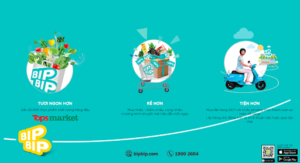
3.2. Goals
Kyanon Digital is in charge of the development of the fulfillment app (BIPBIP) for Center Retail by using Mendix – a low-code development platform.
3.3. Outcome
Thanks to the advantages of Mendix, within 2 months, the low-code team at Kyanon Digital has developed a fulfillment app with over 20.000 product choices from Top Markets, as well as integrated loyalty promotion for members and payment options for seamless customer experience.
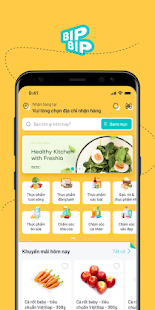
4. Conclusion
Mendix low-code development platform is a visual approach to software development that optimizes the entire development process to accelerate delivery. With low-code, you can abstract and automate every step of the application lifecycle to streamline the deployment of a variety of solutions. By breaking down traditional silos of business and IT (promoting continuous collaboration), your organization can develop solutions that meet the needs of your business.
As a Mendix solution partner, Kyanon Digital works hard to ensure this partnership has the goal of accelerating digital transformation for our clients by providing excellent low-code solutions from Mendix. We’re also keen to dramatically boost the development of new apps, enhance the power of pre-built and customized low-code solutions, and expand the business ecosystem.

Kyanon Digital is a Vietnam-based tech powerhouse providing world-class digital solutions with an agile approach. At Kyanon Digital, we are striving to leverage our expertise everyday to create endless value for our clients, especially recommending the fittest and the most effective solutions. Our consultant teams are capable of supporting globally and fulfill your technological missing piece with the best-suit advice in any sector.
